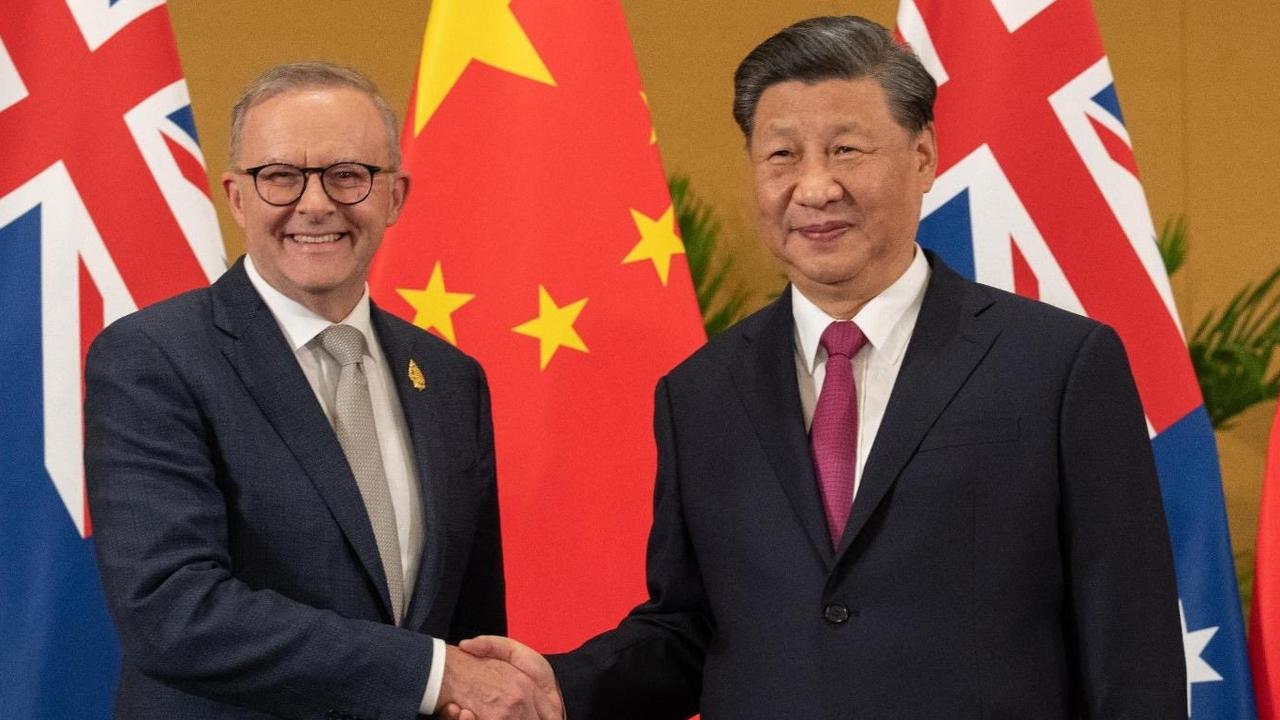China will be briefed on Australia’s multibillion-dollar plan to acquire nuclear-powered submarines despite accusing the AUKUS partners of going down a “path of error and danger”.
In recent days, more than 60 nations have taken up a briefing by the federal government as ministers and bureaucrats seek to allay nuclear proliferation fears.
Beijing did not initially take up the call when offered by Foreign Minister Penny Wong last week, but she confirmed officials would take part in a briefing later on Wednesday.
“We are having a general diplomatic corps briefing, and I understand China will be attending and along with many other countries, and that is a good thing,” she told ABC Radio.
Overnight, China reiterated its concerns about the sharing of weapons-grade nuclear materials from the UK and US to Australia, a non-nuclear nation.
Spokesman Wang Wenbin said the AUKUS pact would only “spur an arms race and under the international non-proliferation regime and harm peace and stability”.
It’s a stance the Australian government has repeatedly denied, stressing that while the vessels would be nuclear-powered, the fleet would not be armed with nuclear weapons.
Under the “optimal pathway” revealed on Tuesday, Australia will undertake a three-phase acquisition plan at an estimated cost of $268bn to $368bn over the next 30 years.
The government was quick to dismiss China’s comments, pointing to Beijing’s own rapid military build-up.
Speaking from Adelaide, where he announced the signing of a co-operation agreement between the SA and federal government to support the build of the AUKUS submarines, Defence Minister Richard Marles said Australia would be “condemned by history” if it did not respond.
“We have witnessed the single biggest conventional military build-up anywhere in the world since the end of the Second World War,” he told reporters.
Asked about the mammoth cost of the build, Mr Marles said Defence was expected to cover the initial $9bn cost over the next four years.
“We’ve been completely clear about the fact that a growing Defence budget is one of the pressures on the federal budget,” he added.
While the Coalition has pledged support for the program, frontbencher Andrew Hastie urged the government to be upfront about where in Defence the cuts would come from.
“There’s a lot of uncertainty with industry and I think it’s time the government made clear exactly where they’re going to be making cuts,” the opposition Defence spokesman said.
“There is always an area for reform … What we want is transparency and that’s what we’re asking for.”
Read related topics:China

